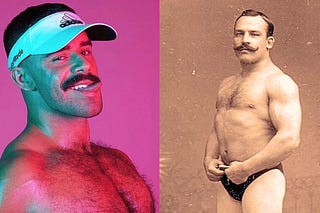
There seems to be a misconception that if you share your work online, any stranger on the internet has the right to criticize it ad nauseam without you being allowed or expected to respond in kind or unkind.
Well, zuck that xit.
Yesterday, I was called hypocritical for putting a couple of negative ninnies on blast.
Oh. Well. Human. In my book, anyone playing the comment game is fair game.
No one has to agree with my approach or like my work.
But no one gets to tell me how to create.
THE WILD, WILD WEST OF ONLINE CRITICISM
In the digital age, I find that sharing your creations online is both a blessing and a curse. If the internet is gonna internet, Clint is gonna Clint.
Sharing creative work online can lead to unprecedented exposure to us creatives, but it also open up the floodgates to unsolicited opinions.
Everybody’s a critic, but not all criticism is created equally. Or fairly.
So how we handle it—and how we dish it out—deserves careful consideration.
THE MISCONCEPTION OF UNILATERAL CRITICISM
The idea that once you share something online, you automatically sign up for endless, unrestrained criticism is beyond flawed…it’s fucked up.
It's a remnant of the old saying, "If you can't stand the heat, get out of the kitchen."
However, this mindset overlooks the basic principle of civil discourse. Constructive criticism is valuable, but a barrage of negativity for the sake of it? Not so much.
THE RIGHT TO RESPOND
Criticism, especially when delivered harshly or thoughtlessly, can sting. And while it's easy for keyboard critics to hide behind their screens, creatives are left to deal with the aftermath.
Some argue that creators should ignore negative comments. But why? Engaging with critics—whether constructively or defensively—is a natural human response. So many talk about creating a sense of “community” without understanding that not everyone in any community (or even household) is gonna agree 100% of the time. In my opinion, being “authentic” can include responding in kind/unkind.
When reasonable minds are involved, the dialogue that can lead to growth and understanding, both for the creator and the critic.
When unreasonable minds are in the mix, it often turns into name-calling and shame-gaming. Growing up a fat, gay nerd, I learned how to handle bullies and hecklers by studying Bette Davis, drag queens, and stand-up comedians.
When I warn people, “I’m nice until I’m not,” I mean it. Proceed with caution.
THE FAIR GAME PRINCIPLE
When you enter the comment section, you're stepping into a public arena.
Just as keyboard critics feel entitled to share their thoughts, creators have every right to respond. This isn’t about tit-for-tat; it’s about maintaining a balanced conversation.
If someone throws a punch, they should expect a counter.
In my book, it’s not hypocrisy; it’s humanity.
CONSTRUCTIVE VS. DESTRUCTIVE CRITICISM
There’s a significant difference between constructive and destructive criticism.
Constructive criticism aims to provide helpful feedback, guiding improvement. It’s specific, actionable, and delivered with empathy.
Destructive criticism, on the other hand, is vague, personal, and usually intended to hurt rather than help.
As creators, we can choose how to react to criticism. Responding constructively to constructive criticism can foster growth.
But there's no rule saying we must silently endure destructive criticism.
Calling out trolls or negative ninnies isn't hypocritical; it's a way of setting boundaries and asserting that respect is a two-way street. A dose of their own medicine usually makes the bullies go away…not here for their bs.
SETTING BOUNDARIES
Setting boundaries is crucial in the digital world. To me, it’s perfectly okay to engage with critics and defend your work. And since few of us can afford the therapy bill, it can also be considered therapeutic.
To me, it’s also okay to block, mute, or ignore those who cross the line from criticism to harassment. By setting these boundaries, we creators can maintain and reinforce a healthier, more positive online environment, creating a safer space for our art and our communities.
If we piss off a few people in the process, oh well. Life goes on.
THE FREEDOM TO CREATE
At the end of the day, no one gets to tell you how to create.
Art, writing, music, or any other form of expression is deeply personal.
Critics may offer their opinions, the final decision always rests with the creator.
Embrace the feedback that helps you grow and do whatever you want with the rest.
Engaging in the online world means encountering both praise and criticism.
Handling this with grace and assertiveness is a balancing act. For me, the right to create comes with the right to defend and discuss your work. The internet can be a space for healthy dialogue, not a one-sided barrage of negativity.
To all fellow creators out there: keep creating, keep responding, and most importantly, keep setting the terms of your engagement. Your work, your rules.
And to the critics: remember, if you dish it out, be prepared to take it too. Fair is fair.
Thanks for reading!
Clint
MORE FROM COLLIDE PRESS
Ko-Fi + Linktree + Shop + Storefront + YouTube




















Well. I've only got the little screenshot to go on, but when someone uses the utter condescension contained in "nope kid" they should expect something back in kind - and yet, your reply was restrained, to the point, and drew a healthy boundary. Hardly hypocritical. Bravo you! ♥️😎♥️